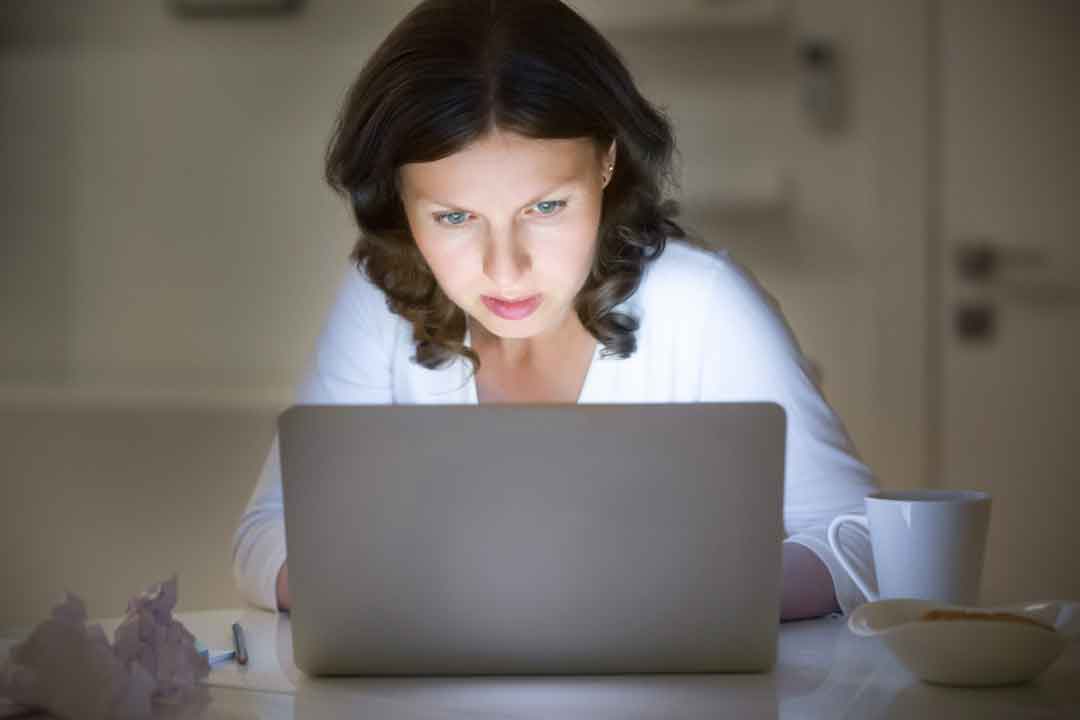
What is wrong with blue light?
Many of us spend a phenomenal amount of time in our modern lives looking at a screen - iPads, phones, TVs, computers, and there result is that we're exposed to much more blue light than we were in the past. Read on to find out more about how this may affect your eyes in this blog post from our head office team.
The light we can see is made up of red, orange yellow, green, blue, indigo and violet light. When these colours are combined, it becomes white light. Each of these colours vary in frequency and wavelength. The blue colours in the spectrum are known to have the highest frequency and energy.
Blue light is everywhere in nature, and we are exposed to it every day just by being outdoors.
The largest source of natural blue light is the sun. Artificial blue light is just about everywhere too: electronic devices, energy-efficient fluorescent bulbs, TV and computer screens and LED lights.
Even though we understand that it is vital to protect our eyes from long-term exposure to the sun by wearing sunglasses, we are only now starting to consider the importance of protecting our eyes from artificial blue light.
Scientific research has shown that normal digital displays present minimal risks, but this only considers short-term exposure. Unfortunately, increased blue light exposure times are becoming the norm.
Even before the COVID lockdowns, Australians were averaging 5.5 hours of screen time a day— (approximately 33% of our waking hours).
In fact, a recent survey found that the average Aussie will spend a total of 145,800 hours—that’s 17 years – of their life looking at their phones, playing video games and consuming content from screens.
Over the past two years, the pandemic has only accelerated these trends.
Blue overload
We have all experienced an increase in screen-time, due to remote learning, video games, working from home, Zoom and Teams meetings, social connections and just hour-upon-hour recreational consumption of Netflix and YouTube videos.
A study has confirmed that screen-time behaviour among Australian families intensified during COVID lockdowns, with children spending almost 27 more hours each week on their screens. Parents, on average, put in an extra 14 and a half hours on their screens each week, compared to pre-COVID.
Basically, we are spending most of our days exposed to a near-constant beam of artificial blue light aimed directly at our eyes until we go to sleep.
The problem isn’t blue light – the problem is too much blue light.
While exposure to natural blue light from the sun helps to maintain our natural sleep/wake cycle, boost our mood and memory, prolonged exposure to artificial blue light from electronic devices may cause eye strain, headaches, physical and mental fatigue and potentially, damage to the retina.
Why do I need blue light glasses?
Our eyes don’t naturally provide protection against natural blue light rays, which is why we are encouraged to wear UV-blocking sunglasses when we are outside.
To guard against the prolonged effects of artificial exposure to blue light, lens technicians have developed a special coating for spectacle lenses. The ‘blue light filter coating’ is designed to reflect and diminish blue light penetration through the lenses.
Because the blue light is reduced, screen brightness is decreased, and contrast is improved. Which means that, in addition to blocking blue light, the lenses ensure that there is less eye strain and fatigue.
What are the benefits?
Proponents of blue light blocking glasses say they increase screen contrast, make it easier to focus and reduce eye strain. At the end of the day, they report fewer headaches, and their eyes are more rested, have reduced dry eye symptoms and they look and feel less tired.
Blue light glasses are designed to provide relief from the increasing hours we spend staring at screens. While they are scientifically proven to block blue light, their effectiveness at relieving headaches, eye fatigue and dry eye often varies from person to person.
If you are experiencing any vision concerns related to screen use, we encourage you to make an appointment to chat to one of our optometrists.
Ready to book an appointment?
Online bookings available or call us on (07) 3463 0349.
This website does not provide medical advice. It is intended for informational purposes only. It is not a substitute for professional medical advice, diagnosis or treatment. Never ignore professional medical advice in seeking treatment. If you think you may have a medical emergency, immediately dial Triple 0 (000).

